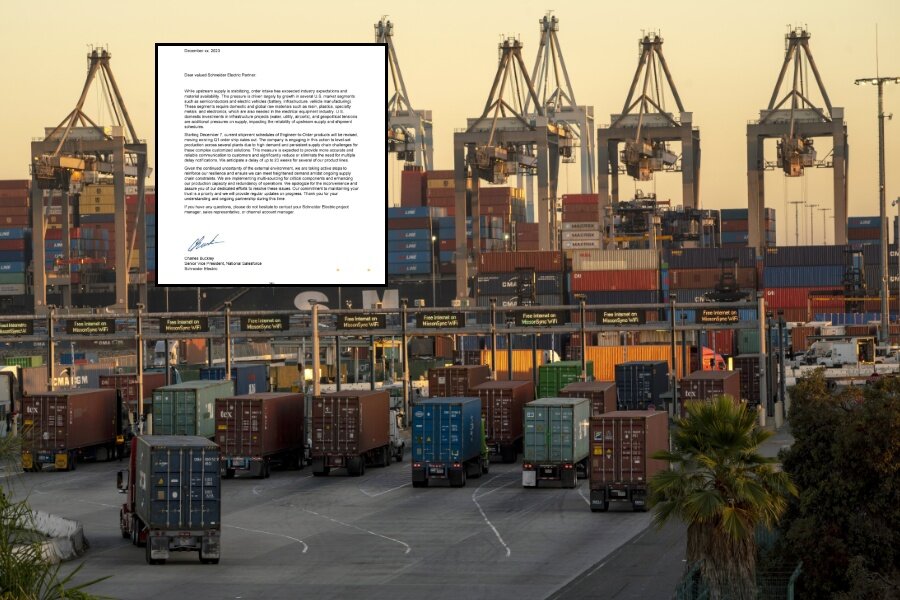The second-largest manufacturer of electrical components globally has announced a 20-week delay for “engineered-to-order” (ETO) components.
Schneider Electric manufactures vital electrical products essential for everyday life. Critical elements such as electrical infrastructure, industrial automation, programmable logic controllers (PLCs), and so much more important parts are made by Schneider Electric. Without these components, the current state of the world will cease to exist.
ETO projects play a crucial role in both public and private infrastructure, with the power grid being a prime example. Any delay in their production and delivery poses the risk of the electrical grid being just one catastrophe away from a potential grid-down blackout scenario.
Adding to the gravity of the situation, the Federal Bureau of Investigation (FBI) has recently issued a warning about cyberattacks targeting the very same types of ETO equipment produced by Schneider Electric.
Put differently, the FBI seems to be hinting, perhaps through predictive programming, at the likelihood of significant disasters in the future. They assert that cyberattacks involving the equipment manufactured by Schneider Electric are imminent, and these disruptions may persist at least until Q1 2024.
“The reason this is so weird is this company is very good at planning,” an industry insider is quoted saying about the situation. “They supply billions of dollars in critical components.”
“They aren’t perfect, but they usually have a plan when they announce something like this. Not this time. The plans behind the announcement letter are very shallow. They got the note out way before anyone on their teams knew what was going on. Many questions with no answers. That is very weird,” he added.
Could Another World War Be on the Horizon?
In a notice to the company’s partners, Senior Vice President Charles Buckley clarified that beginning December 7, there will be revisions to all current shipment schedules for ETO products. Existing Q1 orders will be extended further into the year “to level-set production across several plants due to high demand and persistent supply chain challenges for these complex customized solutions.”
“This measure is expected to provide more accurate and reliable communication to customers and significantly reduce or eliminate the need for multiple delay notifications,” the letter reads. “We anticipate a delay of up to 20 weeks for several of our product lines.”
Buckley stated that order intake has surpassed industry expectations and material availability. The substantial demand is largely driven by rapidly growing segments in the U.S. market, particularly in semiconductors and electric vehicles (EVs). The latter involves expansion in infrastructure, manufacturing, and batteries.
“These segments require domestic and global raw materials such as resin, plastics, specialty metals, and electronics, which are also needed in the electrical equipment industry,” according to the letter.
“U.S. domestic investments in infrastructure projects (water, utility, airports), and geopolitical tensions are additional pressures on supply, impacting the reliability of upstream supply and shipment schedules,” the letter reads.
There is speculation that this might be a diversion, and the “wait and hold” approach for critical infrastructure could be a strategy to provide Schneider Electric with an opportunity to step in and replace damaged critical infrastructure in the event of a cyberattack, a scenario the FBI is cautioning against.
Another reason for the 20-week delay could be that specific projects are undergoing a crucial redesign, possibly prompted by the discovery of vulnerabilities in current security systems.
Over the past few weeks, numerous news reports have emerged detailing localized cyberattacks, such as one affecting water systems in Hawaii and another targeting the Texas power grid.
“Preparations for a world war are clearly taking place in very many countries around the world,” one report suggests. “For the first time, U.S. citizens are likely to see the direct consequences of war on our own soil.”
Share your thoughts by scrolling down to leave a comment.













